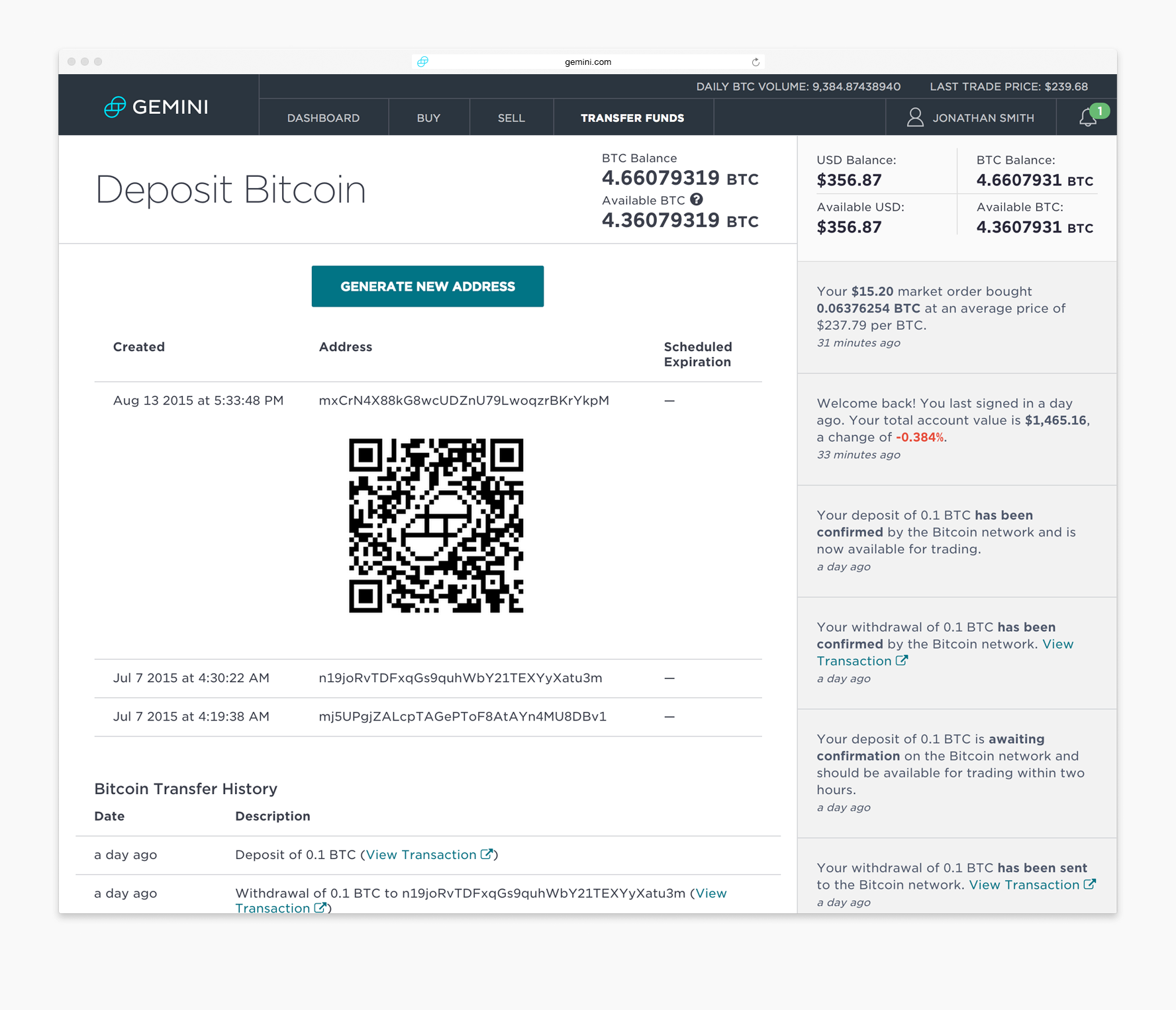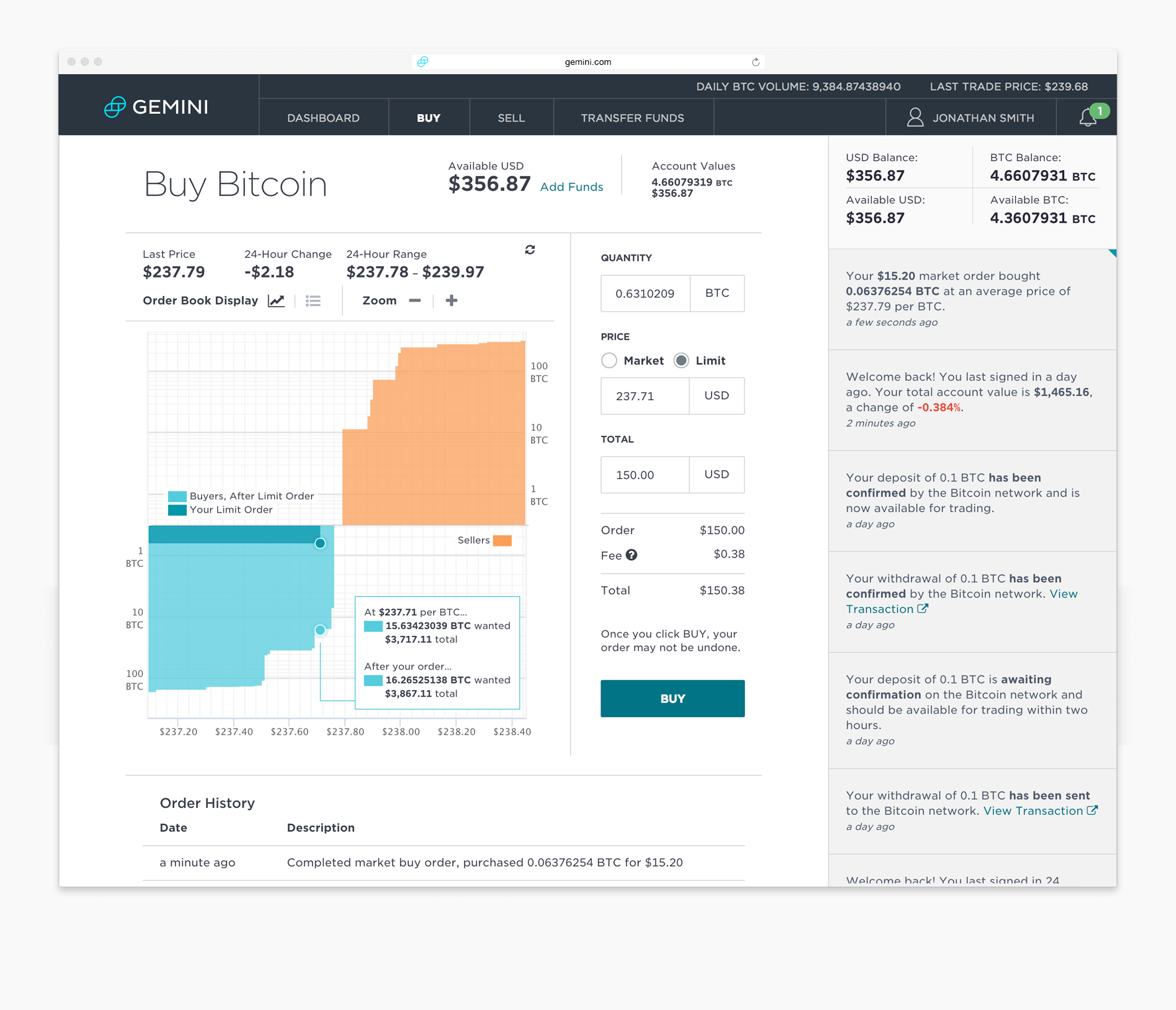Winklevoss Twins Announce the Launch of Gemini Bitcoin Exchange
Investors have been watching and waiting for the launch of Gemini, the bitcoin exchange launched by Cameron and Tyler Winklevoss, since it was first announced on January 23. The wait is over.
Customers have been begun receiving instructions for onboarding and will be able to officially begin trading on the Gemini exchange starting Thursday, October 8 at 9:30 a.m. EST.
The nine months it took for Gemini to go from announcement to launch is due to a belief in the need to “ask for permission, not forgiveness.” However, on September 23, Gemini Trust Company received approval for its Articles of Organization and was further granted an exemption from the deposit insurance requirements of Section 32 of the Banking Law.
Due to its corporate structure as a limited liability trustcompany (LLTC), it is able to service both individual and institutional customers, which is important because many believe that banks are curious about trading bitcoin.
“The reality is that institutions will bring the most amount of capital to the exchange,” Cameron Winklevoss, president of Gemini Trust Company, told Bitcoin Magazine in an interview and demo. “Every major bank in the world has people looking at bitcoin.”
The downside of being an LLTC is that the company itself cannot provide FDIC insurance for its accounts. That being said, Gemini revealed at launch that Signature Bank, based in New York, was one of its primary partner banks that would hold all fiat currency transferred to Gemini. Through Signature, the fiat currency is eligible for FDIC insurance.
Four Silos of Success
In an interview with Cameron Winklevoss, he revealed that the company operates on four silos that they drive toward for success.
The fastest way for a user to lose trust in a company is for security to be insufficient. Because of that, security is the company’s primary objective. They hired Cem Paya, the former security lead at AirBnB, to be the chief security officer at Gemini. Further, all bitcoin is held by Gemini in a cold, geographically dispersed network of servers. When the Winklevoss Bitcoin ETF, COIN, launches, all of its bitcoin will be held by Gemini.
Taking it a step further, though, the company has put in place a rule that prohibits any links in emails. For example, in its “Gemini is open for business!” launch email, there is no link to Gemini. To prevent phishing attempts whereby a hacker gains access to a user’s account, the individual has to manually type in Gemini.com to register.
Following security came compliance. Since the company is based in New York, that meant working with the New York State Department of Financial Services (NYFDS). According to Winklevoss, NYSDFS seemed open to working with Gemini. Compliance was also required for the remainder of the country.
At launch, users in California, Colorado, Delaware, Florida, Idaho, Indiana, Kansas, Kentucky, Louisiana, Maryland, Michigan, Minnesota,Mississippi, Missouri, Montana, New Hampshire, New Mexico, New York, North Carolina, Ohio, Rhode Island, South Carolina, Tennessee, Utah, Vermont,Washington, D.C., and Wyoming can use Gemini starting on Thursday.
The third component of the Winklevoss’ four silos is banking. There have been too many instances where a bank won’t cover a bitcoin company because of the concern about auditing. “It didn’t take a lot of selling to convince the bank to work with us,” Winklevoss said. “They liked the team and the product.”
Only after security, compliance and banking were handled did the product become a priority. And if any of the four silos had to suffer, it would be product.
“You have to have all four right to succeed, but if you’re missing a little bit on product, it’s not going to be catastrophic,” he explained. “Rather than building a rocket shop in the air, we built it in the hanger, tested it, and tested it again, and then we have liftoff.”
In his interview with Bitcoin Magazine, Winklevoss talked at length about the risk tolerance of banks and the simple fact that they hate risk.
“It’s better to have the regulatory framework figured out because the risk appetite of banks is conservative. People don’t recognize how important regulation is these institutions. Banks care,” he explained.
And because it is the big institutions that are bringing the majority of the capital, it was important to the team to have that regulatory framework squared away. “There is a lot of dark pool trading, because it is easier, that will go on exchange when they are regulated.”
Gemini wasn’t the first to market, but Winklevoss said that wasn’t important to him.
“Market centers [like Gemini] will build up reputation and credibility with participants over time. A month does not make or break your business,” he explained, referring to other exchanges that had already launched in New York City.
Trading on the Exchange
The exchange opens for trading on Thursday 9:30 a.m. EST, but users can begin the process of signing up today.
Part of the registration process is a knowledge-based authorization. The system will attempt to verify a user’s identity through a Social Security number and then questions about that user’s credit. For example, it will ask if they have ever owned a house on a particular street if that appears on the credit report. This is meant to speed up the authorization process for that user.

In our demo, Winklevoss stressed the importance that he wanted Gemini to become the favorite of both institutions and individuals.
“Early community is certainly very important because they are the most vocal and they are the ones who will touch the product more,” he explained.
The team went with a very clean look, using as much white space as possible. Further, the system was built with visualization engines that enable the user to identify what impact their particular trade will have on the order book.

For example, in the image above, if a user decided topurchase 0.631 BTC at a limit of $237.71, the blue portion of the order book would fill in darker where that purchase takes place. This is meant to show what the average price would be for the user.
At launch, it will be free to deposit and withdraw fundsfrom Gemini. However, the company will charge a 25 basis points fee for both buyers and sellers who trade on the exchange. There will also be APIs for individuals who are more interested in programmatically trading to participate.
Photo TechCrunch / Flickr
The post Winklevoss Twins Announce the Launch of Gemini Bitcoin Exchange appeared first on Bitcoin Magazine.



